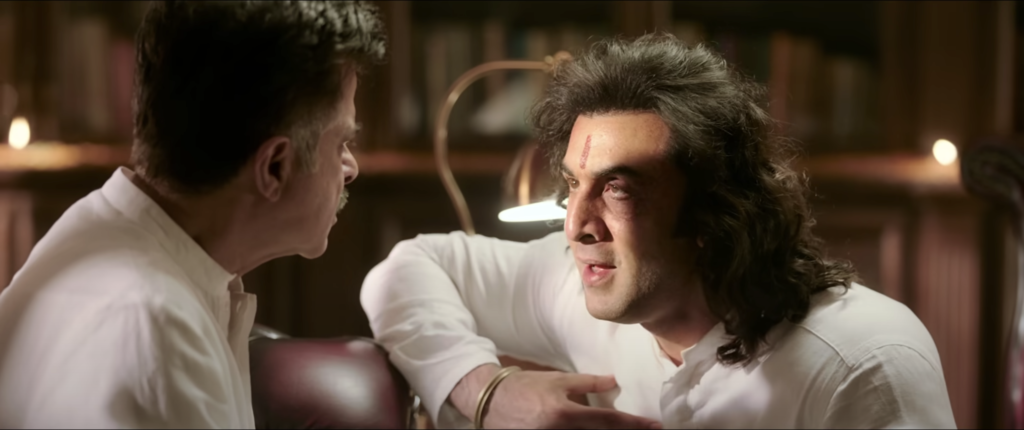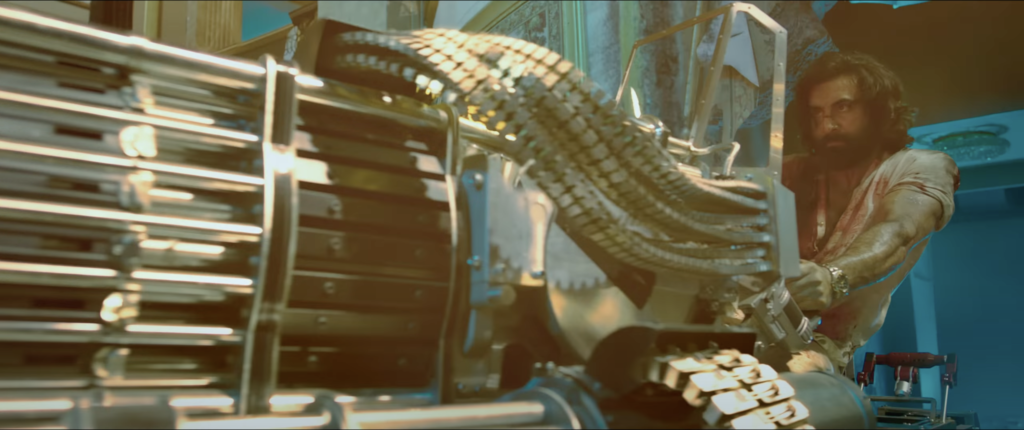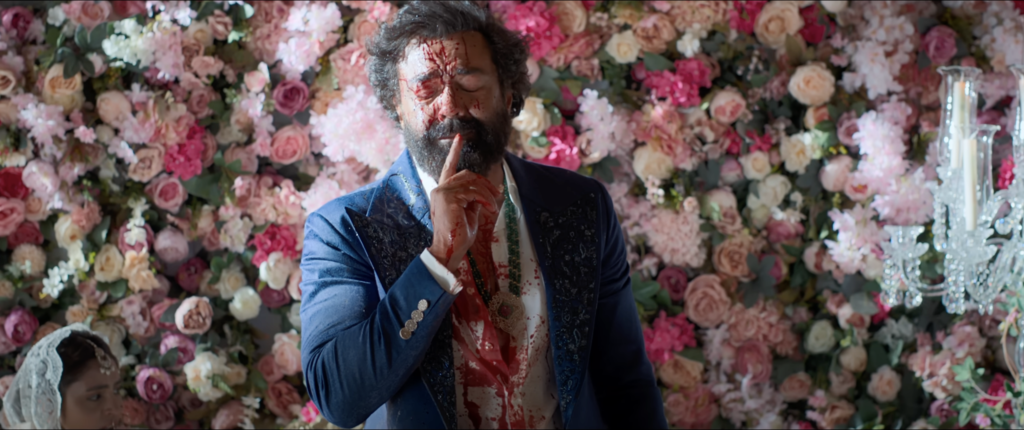Animal is a perfect example of how to make an utterly distasteful, outrageously violent, obnoxiously regressive and illogical film for the sake of entertainment.
And that’s not even the worst part!
Films are, first and foremost, a medium of entertainment. This is where visual storytelling and crisp writing plays a key role to reshape perspectives and challenge ingrained mindsets. It can instigate empathy by inviting viewers to walk in the shoes of characters, fostering a deeper understanding of cultural nuances and relationships.
Here’s where Animal miserably falters as it lacks a coherent plotline.
The premise of the film is set from the opening scene which shows a young boy excited to wish his father, Balbir Singh (played by Anil Kapoor) on his birthday, only to be disappointed by an absent parent who’s too busy to build a successful business empire.

The teasers and trailers leading up to the film’s release indicated the crux of Animal and its protagonist, Ranvijay Singh (played by Ranbir Kapoor) to be based on an unhealthy and traumatic father-son relationship. The negligent father has left a void in his son’s heart, leading to an obsession for validation from the former.
Seems like an interesting plot, right?
However, the film barely touches upon the nuances of a toxic relationship for the viewers to justify the character’s “animalistic” actions. None of the characters are developed enough to understand their journey.
The film is a collection of incidental sequences ranging from slapstick comedy, revenge drama, gory action, and then some, stitched together haphazardly for 200 minutes.

This leads me to another disturbing and awfully problematic aspect of the film – misogyny and casual sexism.
The excessively graphic violence in the film seems more palatable than the vile and irresponsible portrayal of and attitude towards women. Much like other characters in the film, women have zero agency in Animal.
While it can be argued as a work of fiction where the purpose is to perhaps challenge the mindset of the audience, but the fact that a huge section of the audience enjoyed and cheered at the mistreatment towards women was appalling, to say the least.
Not all stories and films have to make a moral point, but they must have some vision and an intention.
What was the vision of the film Animal?
If Sandeep Reddy Vanga’s filmography is any indication, the vision and intention of the film is to create chaos, filth, and push the audience to their limits in the most hostile way.

Watching an overtly macho “alpha male” (as defined in the film as well) misbehaving with women and others, committing heinous crimes under the garb of protecting his family, playing with his big boy toys, and creating havoc without any remorse or consequence is sadly received with immense admiration at the cinemas.
One such sequence is a prime example of careless storytelling when the audience chuckled at Ranvijay’s comment to slap his wife Geetanjali (played by Rashmika Mandanna) for being too controlling, but the same audience gasped when she slaps him.
Is it mirroring society? Perhaps.
Is it responsible storytelling? No.
Was it entertaining? Also NO.

No amount of acting chops, directional prowess and skilfully crafted action sequences justifies making an eye-gouging film like Animal.
The half-baked story, choppy writing and shoddy editing not only makes it unbelievable but also an unbearable watch. It’s all show, no substance.
I’ve never wanted to walk out of a movie theatre faster.
Comment (1)